The MI Honors 2024 Women MAKE Award Winners
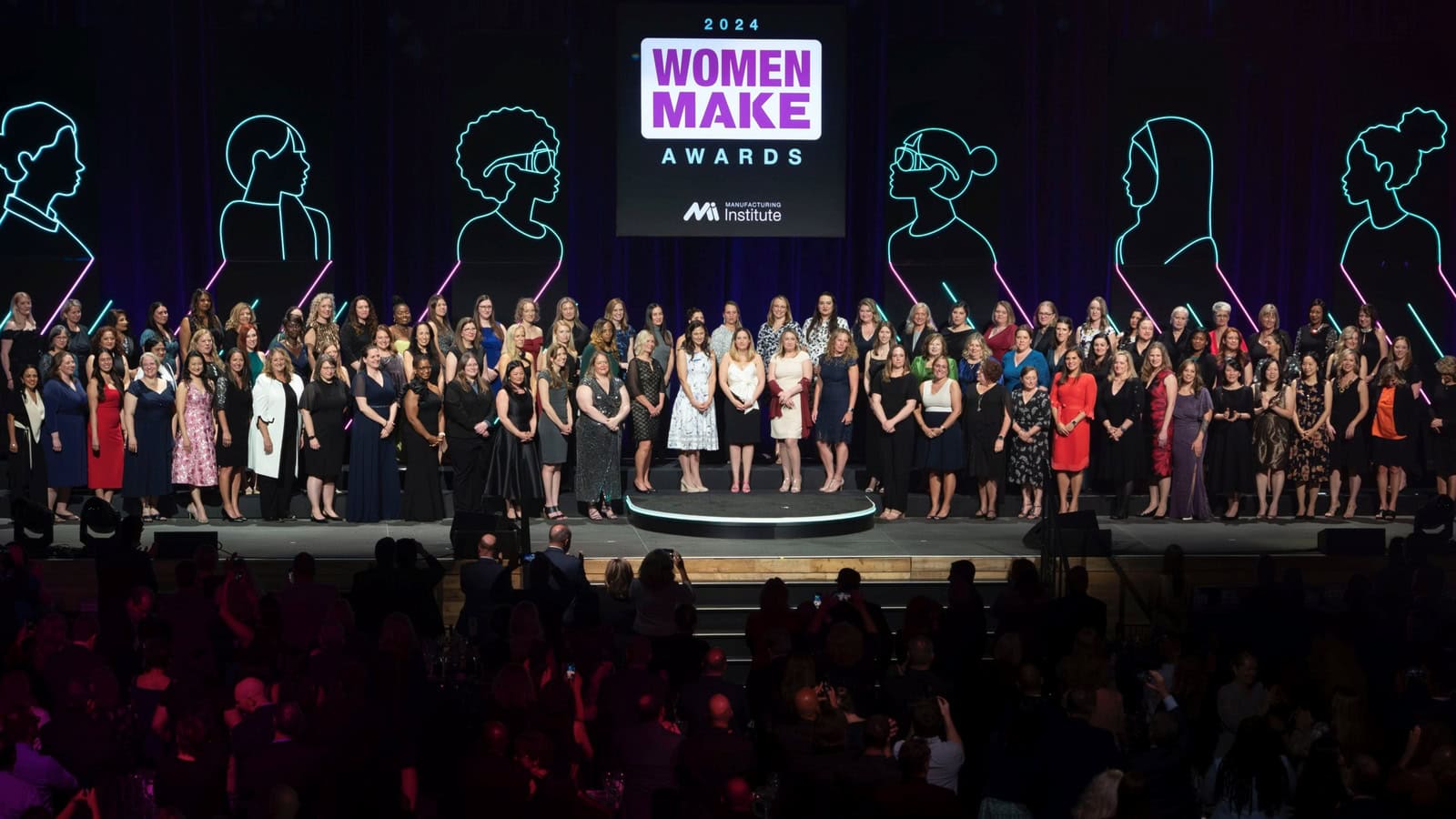
The Manufacturing Institute—the NAM’s 501(c)(3) workforce development and education affiliate—had ample reason to celebrate last night.
What went on: The MI held the 2024 Women MAKE Awards gala, a night that recognizes outstanding women in manufacturing. Each year, the awards pay special tribute to 100 peer-nominated women leaders (“Honorees”) and 30 rising female stars (“Emerging Leaders,” women under the age of 30) in the industry.
- The event, held this year at The Anthem—a waterfront concert venue in Washington, D.C.—was sponsored by Caterpillar, Toyota, BASF, Trane Technologies, International Paper, Johnson & Johnson, Novelis and others.
- It featured a vocal performance by singer Loren Allred, platinum-selling singer-songwriter of “Never Enough” from “The Greatest Showman” musical, who gained widespread fame after appearing on “Britain’s Got Talent” in 2022.
What was said: Caterpillar Group President of Resource Industries, NAM Executive Committee Member and Women MAKE Awards Chair Denise Johnson told the night’s award winners that she’s been “the only woman in a room, or the only woman on a project” many times in her career.
- But “[l]ooking around this theater and seeing the faces of the Honorees and Emerging Leaders tells me that times are changing.”
- She then addressed the honorees directly, saying, “Your success, your work ethic and your stories will inspire the next generation of manufacturing leaders. … You are moving us along toward a future when women are not underrepresented in our industry.”
From Honoree to Vice Chair: Toyota Motor North America Senior Vice President, Electric Vehicle Supply Susan Elkington—a 2014 Honoree of the awards, formerly called the STEP Ahead Awards—was this year’s awards vice chair. She attested to the power of the awards to help women advance in their careers.
- “[T]he Women MAKE network … helped me realize the many qualities and experiences uniting all the women who have been inducted into this amazing network.”
- She noted the cruciality of the MI’s Women MAKE initiative, which “provides a platform for role models and mentors to encourage women to enter the field and succeed in it.”
No limits: NAM President and CEO and MI Chairman of the Board Jay Timmons also discussed the importance of role models, a label aptly applied to all the award nominees.
- Timmons, a parent of three, told the audience that he and his children recently learned the story of 30-year-old Cole Brauer, who last month made history as the first American woman to sail solo nonstop around the world.
- Brauer’s story “sends a message to those—frankly, women or men—who might have been led to believe there were limits to what they could achieve or that their careers might be confined within guardrails,” he said. “Your examples are inspiring people in a similar way. You are powerhouses—your dynamism, your drive, your enthusiasm—all these qualities supercharge modern manufacturing, making our industry an even more powerful force for good.”
“Amazing things”: MI President and Executive Director Carolyn Lee called the nominated women “powerhouses who have accomplished amazing things.”
- “You deserve this recognition for your excellence and for everything you do to uplift others,” Lee told the award nominees. “But we’re not just celebrating. Being here to recognize these winners is shining a light and fueling the work to close the gender and talent gap in manufacturing.”
- Women account for less than one-third of the American manufacturing workforce, she went on, but endeavors such as the MI’s Women MAKE America initiative—the nation’s premier program dedicated to closing the gender gap in the sector—“and companies like yours are committed to closing that gap.”
Learn more: For a full list of this year’s award winners, click here.
Making the Business Case for Sustainability
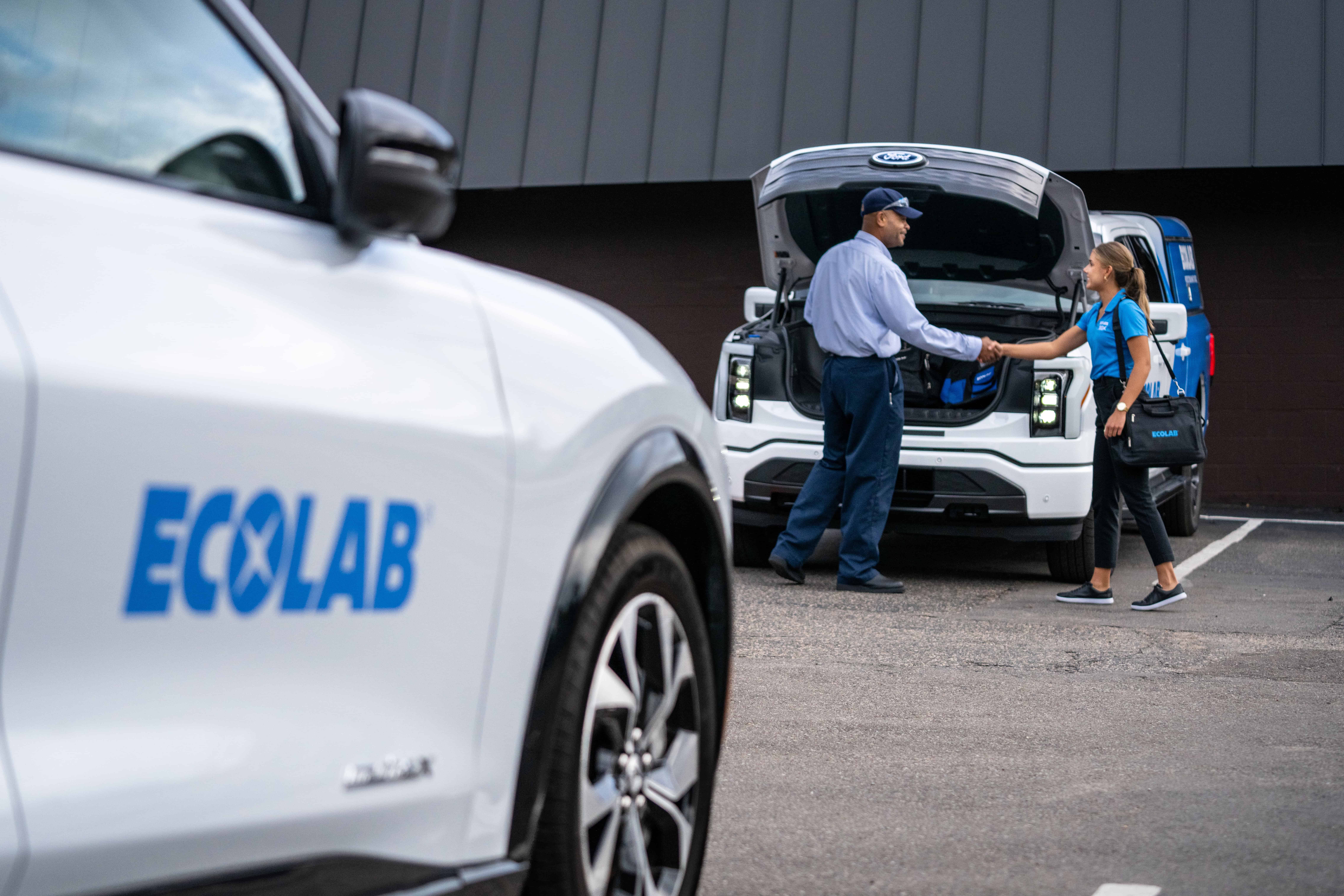
Ecolab’s mission hasn’t changed much in more than 100 years. It’s still “bringing science to our customers in a way that drives performance, productivity and less water and energy use.”
- That’s according to Ecolab Chief Sustainability Officer Emilio Tenuta, who says being climate-minded is not only “the right thing to do,” but also at the core of the St. Paul, Minnesota–headquartered water, hygiene and infection-prevention company’s operating model.
A dual purpose: “We make the business case for why sustainability and [profitability] can go hand-in-hand when it comes to driving solutions,” Tenuta told us recently. “It’s why 48,000 Ecolab associates wake up every morning with the feeling, ‘We’re making a real difference in the world.’”
- Ecolab—which recently announced that 100% of its European operations are now powered by renewable energy sources—helps millions of customers worldwide reduce their environmental impact while promoting food safety, maintaining clean environments and optimizing resource use.
- “At Ecolab, we talk about eROI—Exponential Return on Investment,” Tenuta explained. “It’s about understanding that we have the ability to deliver on a business outcome—profitability—while also delivering an environmental impact.”
Don’t forget water: Often neglected in sustainability conversations, Tenuta said, is water. For a full picture of the effect of conservation and innovation efforts on climate, water needs to be factored in.
- “Sometimes we forget the role that water plays in addressing climate change,” he continued. Depending on the type of manufacturing, up to 75% of energy is driven by the water systems. You have to heat it, treat it, pump it, cool it. …Water doesn’t necessarily get the same headlines as climate, but if you follow the water, that’s going to have a lasting impact” on the environment, while also saving you money.
A holistic approach: In addition to being recognized regularly for its environmental stewardship, Ecolab is routinely named to most-ethical-company lists. That’s no accident; to the company, caring for the planet goes hand-in-hand with caring for people, Tenuta told the NAM.
- “Workplace quality is just [one way of] demonstrating a holistic approach to the world,” he said. “That’s how we think about it at Ecolab. It’s for us as a company but it’s also for society as a whole.”
A sustainable partnership: In furtherance of its financial and net-zero emissions goals, the firm recently partnered with Ford to electrify its service and sales vehicles.
- Ecolab—which has “a longstanding relationship dating back almost 100 years” with the automaker, according to Tenuta—has pledged to both halve emissions from its own operations and help its customers reduce their emissions by 6 million metric tonnes by 2030. “To get there, we need to implement initiatives like electrifying our fleet,” he said.
- Under the program, Ecolab will buy and deploy more than 1,000 Ford F-150 Lightning and Mustang Mach-E electric vehicles for its employees in California by 2025. The company will then move to electrify its entire North American sales and service fleet by 2030. “This allows us to support our associates so they can be more productive in their day-to-day work serving our customers and getting to net zero.”
Advice for manufacturers: Achieving sustainable operations doesn’t happen overnight—but undertaking the efforts to get there is well worth manufacturers’ time, Tenuta said.
- “Sustainability requires a multifaceted approach that considers all things: social, emotional, economic. It’s about in some ways taking a longer-term view of progress and opportunity. That can be challenging, but by elevating innovation and long-term commitment, companies can build a more sustainable future … and boost profitability.”
From Mentee to Mentor: Rockwell Automation’s Aaliyah Brown
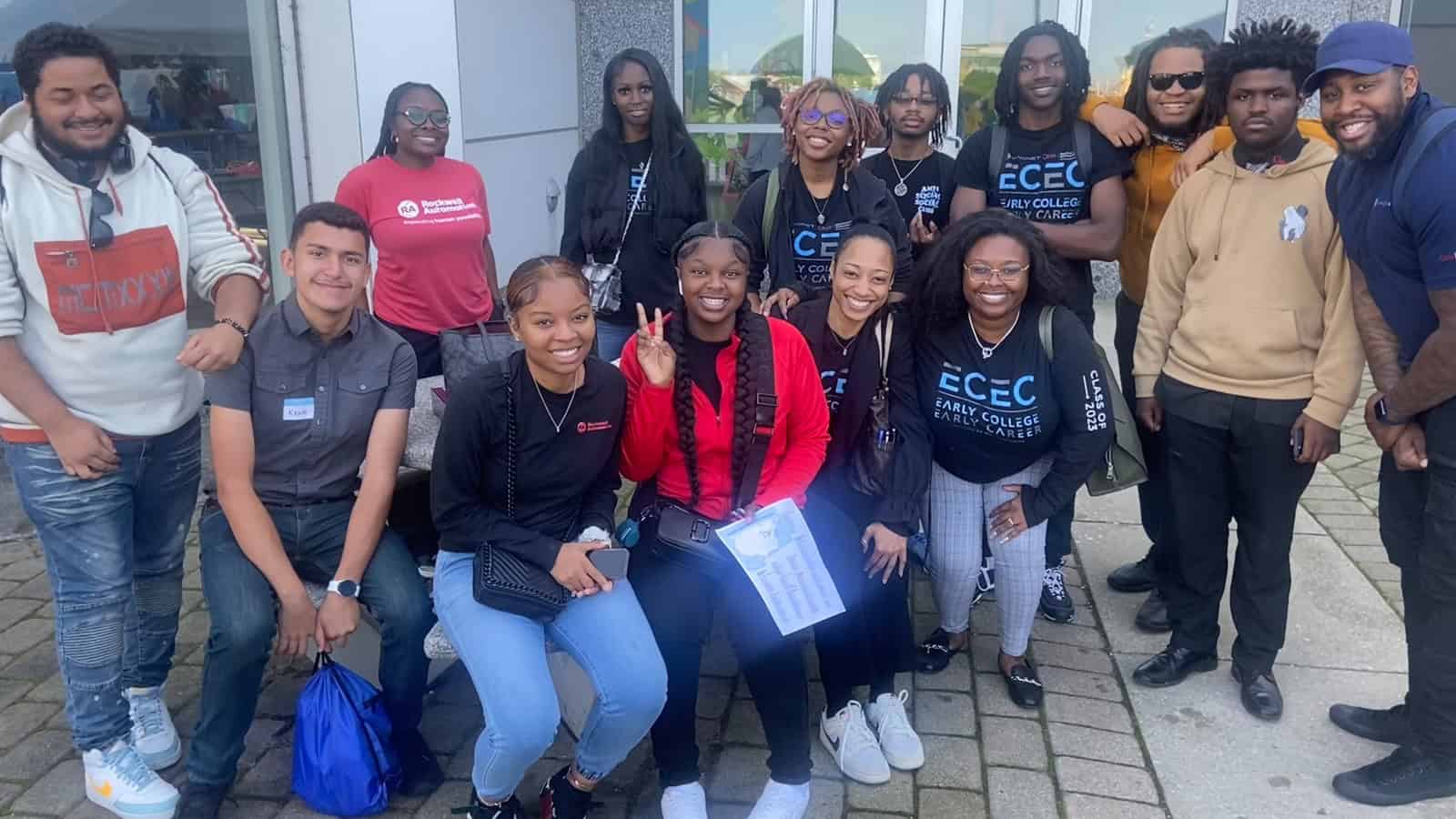
To hear Aaliyah Brown tell it, the start of her career in manufacturing was the result of a happy accident.
“My interest in manufacturing actually started accidentally,” the Rockwell Automation quality engineering team lead said with a laugh. “I was hired as a high school intern [at age 16]. I had a lot of different positions within my role, from [learning] how our different products are utilized in the field, to project management, to printed circuit board design. That’s when I really started to dip my toe into manufacturing.”
A quick ascent: After obtaining her bachelor’s degree in electronic engineering technology from Cleveland State University in 2019, Brown—who works at Rockwell Automation’s Twinsburg, Ohio, location—was hired full time by the automation and digital transformation technologies company as a process engineer.
- Three years later, she was made a quality engineer. Just a year after that, she was promoted to quality team lead.
- Her meteoric rise is one of the reasons her colleagues nominated her for this year’s Women MAKE Awards, honors given annually by the Manufacturing Institute, the NAM’s 501(c)(3) workforce development and education affiliate, to women in manufacturing who have accomplished remarkable successes at their companies.
The elevator speech: Her day-to-day job may be complex, but for the layperson, Brown can break down her duties in just a few sentences.
- “Manufacturing quality can be explained as anything that goes wrong within a manufacturing facility,” she said. “My team has to figure out why it happened and how to fix it to make sure it does not happen again.”
Paying it forward: Brown credits a great deal of her early professional success to mentor and colleague Marzell Brown (“no relation whatsoever”), a talent management lead at Rockwell Automation.
- Like Brown, Marzell Brown is a graduate of the Cleveland Metropolitan School District. Years ago, seeing a lack of programs in the greater Cleveland area designed to expose youth from traditionally underrepresented communities to science, technology, engineering and math careers, he helped found Brown’s alma mater, Cleveland’s MC2 STEM High School. Later, he spearheaded the internship program at Rockwell Automation’s business engineering unit that Brown completed.
- “Before I started going to summer camp at a private school, I had no idea what an engineer was,” Brown continued. “No engineers were in my family at the time. I was in the second graduating class of MC2 and about, I think, the seventh cohort of students Marzell brought in.”
- Inspired by her own experiences, in 2017—while still in college—Brown founded the nonprofit Build Sessions CLE, a mentorship initiative for college-bound STEM students from underrepresented communities.
- “All of the wonderful things that Marzell did for me and others like me, all of those best practices, those are what I brought over” to my job and to Build Sessions CLE, she said.
Changing perceptions: Brown—who helps lead Rockwell Automation’s annual Manufacturing Day events—believes that if more young people knew what modern manufacturing was really like, they would be much more inclined to enter the field.
- “I want to reach back … into these high schools, to provide these students with the great opportunities [I had] and show them that, yes, you can be successful here, and manufacturing facilities aren’t dirty and dingy,” she said.
Calling all women: She knows, too, the importance of shoring up the percentage of women in manufacturing in the U.S., which is around 30%.
- And there’s encouraging news on that front from the Rockwell Automation internship program that launched Brown’s career: If current trends continue, the number of women coming into the company from that program is going to rise, she told us.
- “[To all the] young ladies who don’t know exactly what they want to do, but have interests—say, sewing or project management or just wanting to help people— there are ways to be able to use all of those” talents in manufacturing, Brown said. “And you can have a very lucrative career here.”
IRI Announces Winner of Prestigious Holland Award

Should manufacturers strive to be “cutting edge”?
That’s the question explored in “Is ‘Cutting-Edge’ Good? Assessing Product Newness Factors in Technologically Turbulent Environments,” the paper that won the Innovation Research Interchange’s 2023 Maurice Holland Award.
- The honor, named for the IRI’s founder, has been bestowed annually since 1982 by the IRI, the NAM’s innovation division. It goes to the best article published in the IRI’s flagship publication, Research-Technology Management.
- Winning papers exemplify a commitment to significant work in research and development and innovation management, originality of new management concepts and excellence in presentation.
- This year’s paper, by Michael Obal, Todd Morgan and Wesley Friske, does all three, according to the IRI.
Providing value: “In innovation, novelty generates the most attention but does not always translate into better value for the company and customers,” said Research-Technology Management Editor-in-Chief Yat Ming Ooi.
- “This article tells readers when and to whom novel new products matter and why companies need to strike the right balance to ensure better new product performance.”
Authors respond: Research-Technology Management “is a leading academic journal for innovation-related research, and thus having an opportunity to publish an article in RTM is a significant accomplishment in its own right,” said co-author Friske, an associate professor at Missouri State University’s marketing department. “I am also grateful for the opportunity to share this award with my friends and co-authors, and it is particularly important to me now that Todd is no longer with us.”
- Co-author Morgan, an assistant professor at Cleveland State University’s Monte Ahuja College of Business, passed away in 2023.
- “I’m honored to receive the Holland Award from Research-Technology Management alongside Todd and Wes,” said co-author Obal, an associate professor at the University of Massachusetts Lowell’s Manning School of Business. “All three of us have aimed to publish academic work that impacts practitioners throughout our careers, [so] receiving an award from a journal that specifically focuses on bridging the gap between academia and practice is especially gratifying.”
- “This paper and award are bittersweet as Todd is no longer with us,” Obal continued. “[But] I am encouraged that his work will continue to have an impact.”
About the IRI: The IRI offers insights, case studies, research, benchmarks and strategic connections—all built around a set of innovation growth drivers as determined by members annually. Click here to learn more about the IRI.
Manufacturer to Congress: Support the American Dream
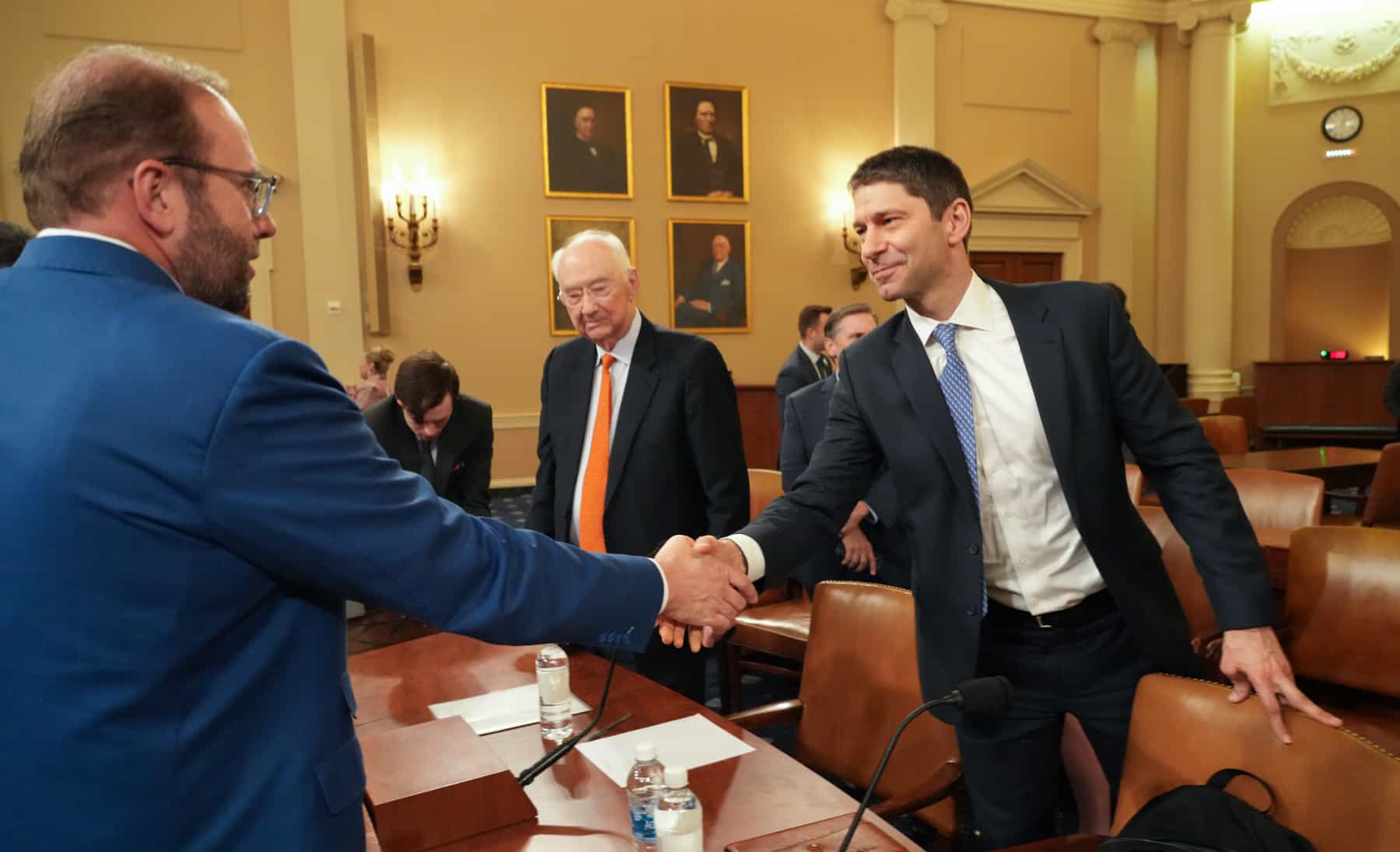
Austin Ramirez is living proof that the American dream still works—when the right policies are in place.
The president and CEO of family-owned Husco, a Waukesha, Wisconsin-based, hydraulic and electromechanical control systems manufacturer, told lawmakers Thursday that his family was able to found and expand a successful business in large part thanks to pro-growth tax policies.
All in the family: “My dad came to the states from Puerto Rico as a 6-year-old and grew up to earn a master’s in aerospace engineering and a Harvard M.B.A.,” Ramirez said at a hearing of the House Ways and Means Committee.
- “In short, our story is the embodiment of the American dream. But it was made possible by American reality—the laws that all of you write in this very room have a direct, concrete impact on our ability to succeed.”
Impact of expirations: The 2017 Tax Cuts and Jobs Act made it possible for manufacturers across the country to invest in new equipment, pay for renovations and expansions, hire much-needed workers and more. It was “unquestionably a success,” according to Ramirez.
- But the 2022 and 2023 expiration of three manufacturing-critical tax provisions in the legislation—immediate expensing for domestic research and development, enhanced interest deductibility and full expensing, which the NAM has been urging legislators to reinstate—has already hit Ramirez’s business, and hard.
- “Husco now has to amortize our R&D expenses, making it far more costly for us to design customized, proprietary products for our customers,” Ramirez went on. “Debt financing is now more expensive … [a]nd we can no longer immediately expense the full cost of our capital equipment purchases, forcing [us] to make smaller investments, spread out over many years.”
More tax increases coming: Ramirez also highlighted the TCJA provisions that are set to expire next year and the economic damage the expiration would cause.
- “At the end of 2025, individual tax rates will increase and individual tax brackets will decrease,” he said. “These changes mean that pass-through businesses like Husco will have more of our income subject to a higher rate of tax. At the same time, the pass-through deduction will expire completely, doubling down on the tax hikes that we face. … [A]llowing tax reform to sunset will undermine much of the progress we’ve made since 2017.”
What must happen: Ramirez thanked the committee for passing the Tax Relief for American Families and Workers Act—and reminded them of work still to be done.
- “Congress must act now to restore expired provisions—and be prepared to act in 2025 to forestall even more damaging tax increases. Only by preserving the Tax Cuts and Jobs Act can Congress ensure that uniquely America stories like Husco remain possible.”
NAM: EPA’s National PFAS Drinking Water Standard Threatens Manufacturing

Municipal water systems will soon be required to remove six types of per- and polyfluoroalkyl substances, or PFAS, from drinking water, The New York Times (subscription) reports.
- But the move could backfire and have adverse effects on manufacturers, the NAM said Thursday.
What’s going on: The Environmental Protection Agency on Wednesday announced the first-ever national rule limiting PFAS “to near-zero levels.”
- PFAS are compounds that have been used for decades due to their rare ability to douse fires and resist grease, corrosion and stains. They’re found in everything from semiconductors to medical devices and renewable-energy production equipment.
- But under the new mandate water systems across the U.S. will have three years to monitor the chemicals and a further two years to put into place technology to reduce the compounds’ levels in the water.
- The utilities “would be required to notify the public and reduce contamination if levels exceeded the new standard of 4 parts per trillion for [PFOA and PFOS]. Previously, the agency had advised that drinking water contain no more than 70 parts per trillion of the chemicals.”
The background: The rule comes just over a year after the EPA proposed the first federal limits on two PFAS chemicals, known as PFOA and PFOS.
The funding: The 2021 Bipartisan Infrastructure Law set aside $9 billion to help communities with PFAS removal. The government will make $1 billion of it available to states and territories to help defray the cost of testing and treatment over the next few years.
Higher prices, less security: The new standard is wholly infeasible, NAM Managing Vice President of Policy Chris Netram said, and will lead to cost increases throughout the supply chain and make our national defense more difficult.
- “In many instances, there is no viable alternative for these chemicals, and companies may be forced to change plans dramatically” to comply with the new rule, he said. “The severity of the proposed regulations will mean higher prices for everything—community water and waste systems, medical treatments and electronics. More alarming, the regulations will make it more difficult to produce the equipment our military needs to defend our nation.”
What we’re doing: The NAM is weighing legal options for reversing the final rule, according to Netram.
Small Manufacturer: Industry Needs Tax Consistency
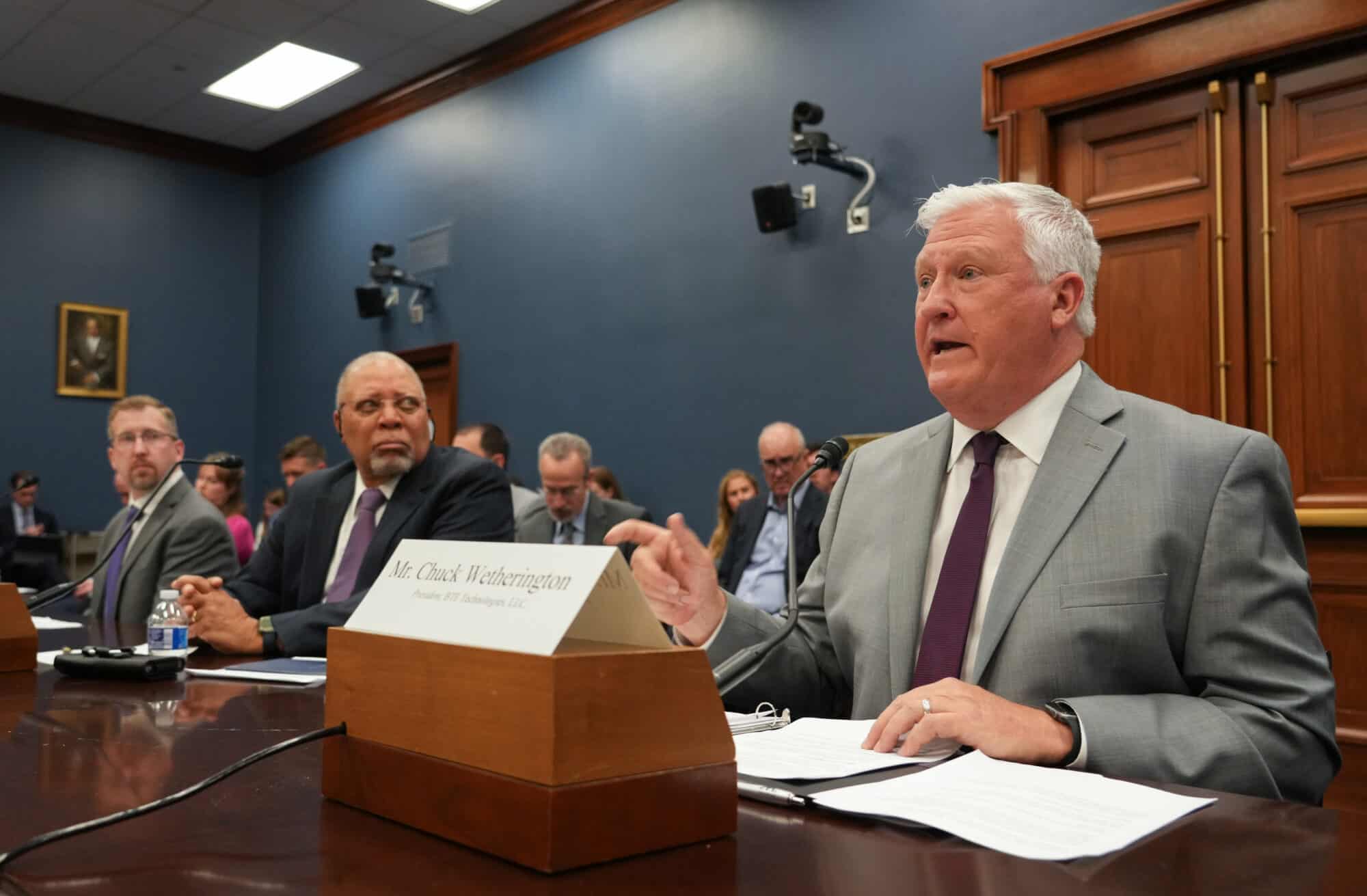
Small manufacturers need one thing from Congress, BTE Technologies President Chuck Wetherington told lawmakers on Wednesday: a consistent, pro-growth tax code.
What’s going on: Speaking at a hearing of the House Committee on Small Business, Wetherington told lawmakers how increased taxes and frequent changes to the tax code have harmed his company, a 40-employee medical device manufacturer in Hanover, Maryland.
- By passing the 2017 Tax Cuts and Jobs Act, “Congress was able to take a stale, outdated tax code and update key provisions to reduce taxes on small manufacturers,” Wetherington said. That legislation “drove a new wave of economic activity and industrial expansion. BTE, and many of our peers in the industry, experienced historic growth in the years between tax reform and the pandemic.”
- But the expiration in 2022 and 2023 of three crucial tax provisions—immediate expensing for domestic R&D, enhanced interest deductibility and full expensing, each of which the NAM is leading the charge to reinstate—is now hurting BTE and other businesses in its supply chain.
- And more tax hikes are on the horizon, with tax reform’s small business incentives—including the 20% pass-through deduction—set to expire at the end of 2025.
Less capital, fewer projects: “Bringing a medical device to market is extremely risky and takes years and millions of dollars of investment,” Wetherington continued. “But now, BTE cannot immediately expense those costs—reducing the working capital I have available to invest in my business and my employees … [and] delay[ing] projects to redesign and improve BTE’s flagship products.”
- As a direct result of the changes, BTE has had to put off expansions that would have allowed it to expand its workforce by 50%.
- And because most of BTE’s suppliers are pass-through businesses (entities in which profits pass through to the owner and are taxed at the individual rate), BTE will see even higher operating costs at the end of 2025, when tax rates are scheduled to increase and the pass-through deduction is set to expire.
What must be done—now: The Senate must pass the House-passed Tax Relief for American Families and Workers Act, which would reinstate the three expired provisions that are so critical to manufacturers. And Congress must commit to preventing the economic damage from the scheduled tax increases.
- “We deserve a tax code that promotes innovation and demonstrates to the rest of the world what our values will be for the next decade and beyond,” Wetherington said.
Baltimore Port Could Be Fully Operational by May’s End
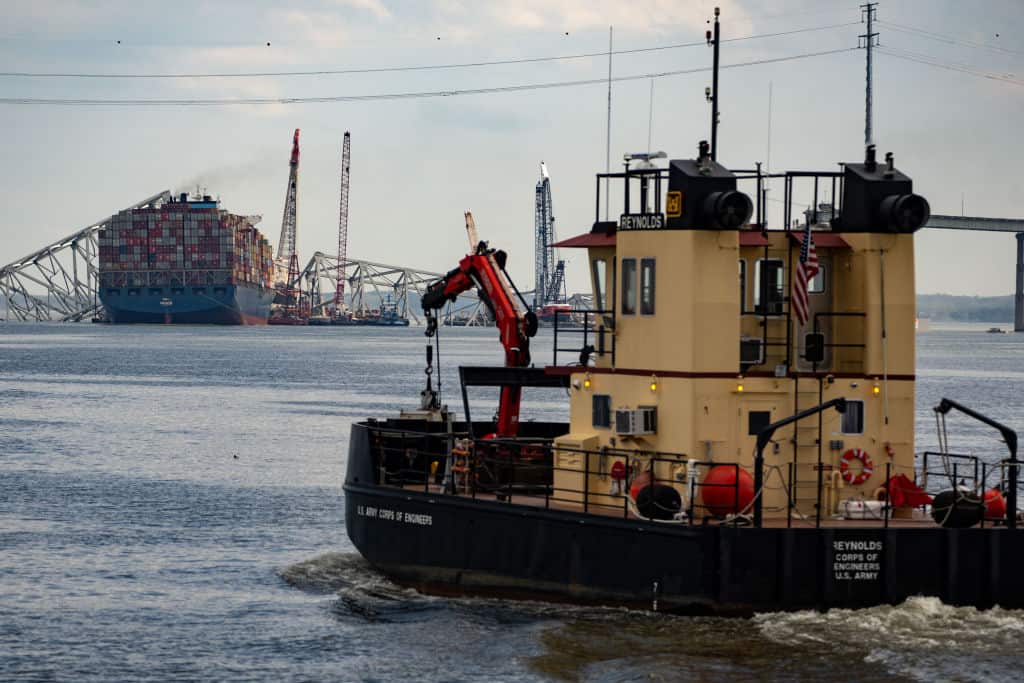
The Port of Baltimore could be reopened fully by the end of May, according to POLITICO.
What’s going on: “The U.S. Army Corps of Engineers said it is aiming to reopen the channel leading to the Port of Baltimore by the end of May, a timeline [Maryland Gov. Wes] Moore confirmed Sunday [on CBS’ “Face the Nation”] is ‘realistic.’”
- The port has been closed since March 26, when a Singapore-flagged cargo ship hit the Francis Scott Key Bridge, destroying the bridge and killing six construction workers.
- While Gov. Moore did not give an estimate of the cost to rebuild the bridge, the closure is costing the port about $15 million a day in economic activity, the Baltimore Sun reports.
- And business analytics group Dun & Bradstreet has estimated the weekly economic impact of the closure on trade at about $1.7 billion, according to The Wall Street Journal (subscription).
“Absolutely committed”: The governor’s remarks came just days after the Office of Management and Budget urged Congress to authorize covering the full cost of rebuilding the bridge, according to Punchbowl News.
- “My administration is committed—absolutely committed to ensuring that the parties responsible for this tragedy pay to repair the damage,” President Biden said during a visit to the site of the bridge on Friday. “But I also want to be clear: We will support Maryland and Baltimore every step of the way to help you rebuild and maintain all the business and commerce that’s here now.”
The NAM’s view: “The NAM applauds the bipartisan efforts of federal and state officials to reopen the Port of Baltimore and rebuild the Key Bridge,” said NAM Director of Transportation, Infrastructure and Labor Policy Max Hyman. “It’s important to note that reforming our broken permitting system would significantly speed up projects such as this, returning much-needed economic activity and jobs to communities throughout the U.S.”
If you’ve been affected: Manufacturers affected by the bridge collapse and port disruption can access vital resources at the new online Resources and Info Hub of NAM state partner the Maryland Chamber of Commerce.
- The chamber and its partners are committed to helping manufacturers navigate this disruption and get on the path to recovery.
- Share your thoughts on the disaster and recovery efforts by filling out this survey.
Manufacturers Bracing for FCC Vote on Broadband Regulation Rule
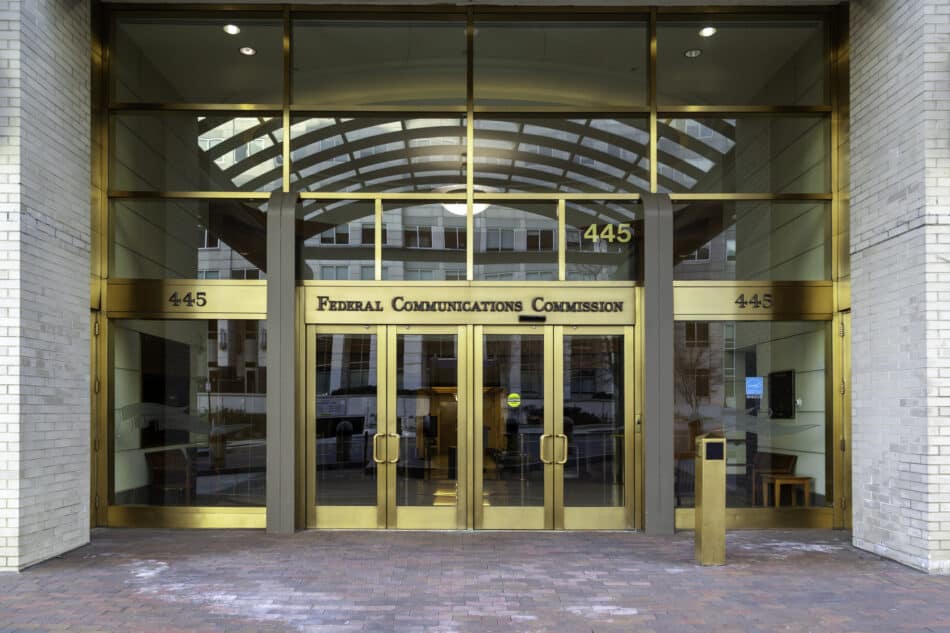
The Federal Communications Commission is set for an April 25 vote to bring back “net neutrality,” aiming to reinstate a national regulatory framework for broadband internet services, Fox Business reports. The NAM is speaking out against it.
What is it: “The Biden administration’s rule would regulate broadband services as an essential resource under Title II of the Communications Act.’’
How did we get here: “In 2015, the FCC adopted the Obama administration’s [net] neutrality rules, known as the Open Internet Order. The rules survived a legal challenge with a favorable ruling by a federal appeals court in 2016.”
- In 2017, the Trump administration rolled back broadband regulation with a regulation known as the Restoring Internet Freedom rule, citing it as an impediment to innovation and investment by internet service providers. This decision held up against a legal challenge.
- By 2021, President Biden’s executive order suggested reviving Obama-era broadband rules. With Democrats leading the FCC by October 2023, a formal process began, setting the stage for a conclusive vote.
What would happen next: The NAM sent detailed feedback to the FCC last December, warning that reinstating broadband regulation “will lead to a slowdown in innovation and investment.”
- The NAM’s feedback pointed to the negative impact of the Obama administration’s previous attempt to implement the policy: “In 2015, the last time the FCC sought to regulate broadband under Title II, annual industry capex fell by half a billion dollars.”
- The FCC’s decision exceeds its authority and could also be subject to litigation: “Congress has not explicitly given the commission the authority to regulate broadband and reclassify it in this way; therefore, the FCC lacks authority to do so.”
Our take: “As with the other elements of the regulatory onslaught out of Washington these past few years, this is yet another solution in search of a problem, because we already have an open and fair internet,” said NAM Senior Director of Technology Policy Franck Journoud. “As we’ve warned, this will regulate broadband as if it were the same as rotary telephone service, which would slow innovation. The commission really is doing nothing to answer the question of ‘why’ this policy should be brought back.”
- The NAM has long opposed broadband regulation and went to court to support the FCC’s 2017 decision to repeal the rule. As NAM Chief Legal Officer Linda Kelly said, “Internet-driven technology is at the heart of modern manufacturing, and the FCC’s decision to repeal the onerous 2015 net neutrality rule was a victory for the competitiveness of manufacturers in America.”
The NAM will closely follow the FCC’s latest vote on net neutrality and is prepared to oppose any decision to restore this outdated policy.
“Why Inclusion Matters”: GM’s Stephanie Thompson on STEM, Women in Manufacturing
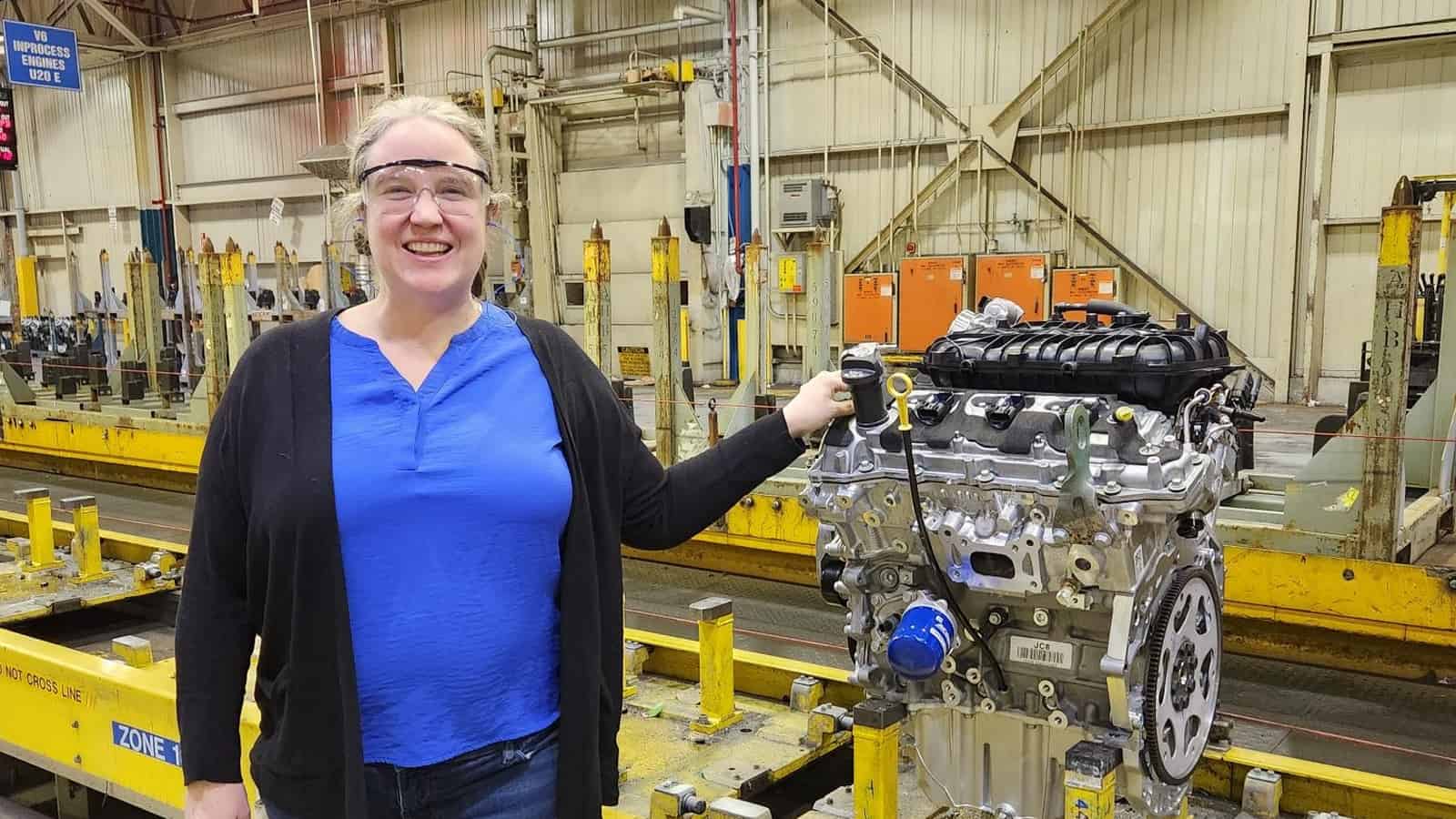
Stephanie Thompson may not have always intended to go into manufacturing, but she’s very glad she did.
The path taken: “You don’t necessarily plan your journey, but sometimes you can look back and see how those paths presented themselves,” and you’re thankful they did, said the engineering manager at General Motors’ facility just outside St. Catharines, Ontario, Canada.
- “My career in manufacturing started in internships in university. I worked for a food manufacturer, for a company that made above-ground swimming pools … It was a great chance to try out different businesses, and I [realized that I] love the buzz and excitement that manufacturing has.”
Award nominee: Thompson is a 2024 Honoree of the Women MAKE Awards, honors given annually to 130 women making a difference in manufacturing by the Manufacturing Institute, the NAM’s 501(c)3 workforce development and education affiliate.
- Thompson—who started working for GM full time right after university and has held multiple positions in her 23 years there—was the first woman to become an engineering manager in her time at her site.
- Women MAKE Award winners will be celebrated April 18 at the 2024 Women MAKE Awards Gala in Washington, D.C.
Always improving: An Ottawa native and graduate of the University of Waterloo, Thompson sums up her very complex job as “a manufacturing assembly specialist [who] makes sure people can do their jobs safely—and do it over and over again.”
- She oversees the assembly of whole powertrain lines. For one particular engine, “I was there for the first one made, and I was here for the last—we made over 5 million,” she said of a recently retired line.
- “We are always looking to make improvements, to make things more cost effective, to make things simpler,” she said. “The problem-solver part of me really enjoys making those incremental differences every day. [In manufacturing,] you get that sense of satisfaction from making stuff and ultimately giving a customer what they want.”
Women in STEM: Thompson, who has been recognized several times in her native Can
ada for her commitment to women’s education in science, technology, engineering and math, somehow found the time a few years ago to launch STEMbySteph.com, a STEM-focused website that includes a workshop series for women in the fields.
- She is also a mentor for FIRST Canada, which aims to interest kids in science and technology, and a regular speaker on related topics.
- “There are so many great women coming up through the ranks” in manufacturing today, she told us. “I want them to know there isn’t a limit to what they can do. I want to put myself out there as a technical role model, so women who apply [for manufacturing and STEM jobs] see themselves on the interview panel. They should know there’s a space for them in manufacturing.”
Work in progress: And while she’s had “nothing but great experiences with the men in manufacturing,” Thompson said the industry as a whole could benefit from “having some conversations” to make sure women feel welcome.
- “I don’t think it’s malicious,” she said, of the relatively low number of women in manufacturing (they make up about 30% of the
manufacturing workforce). “But one of the things you have to do as a leader is create intentionality and create environments where conflict is positive, where you can all create ideas to [fix] the problem and where individuals feel safe being themselves.”
